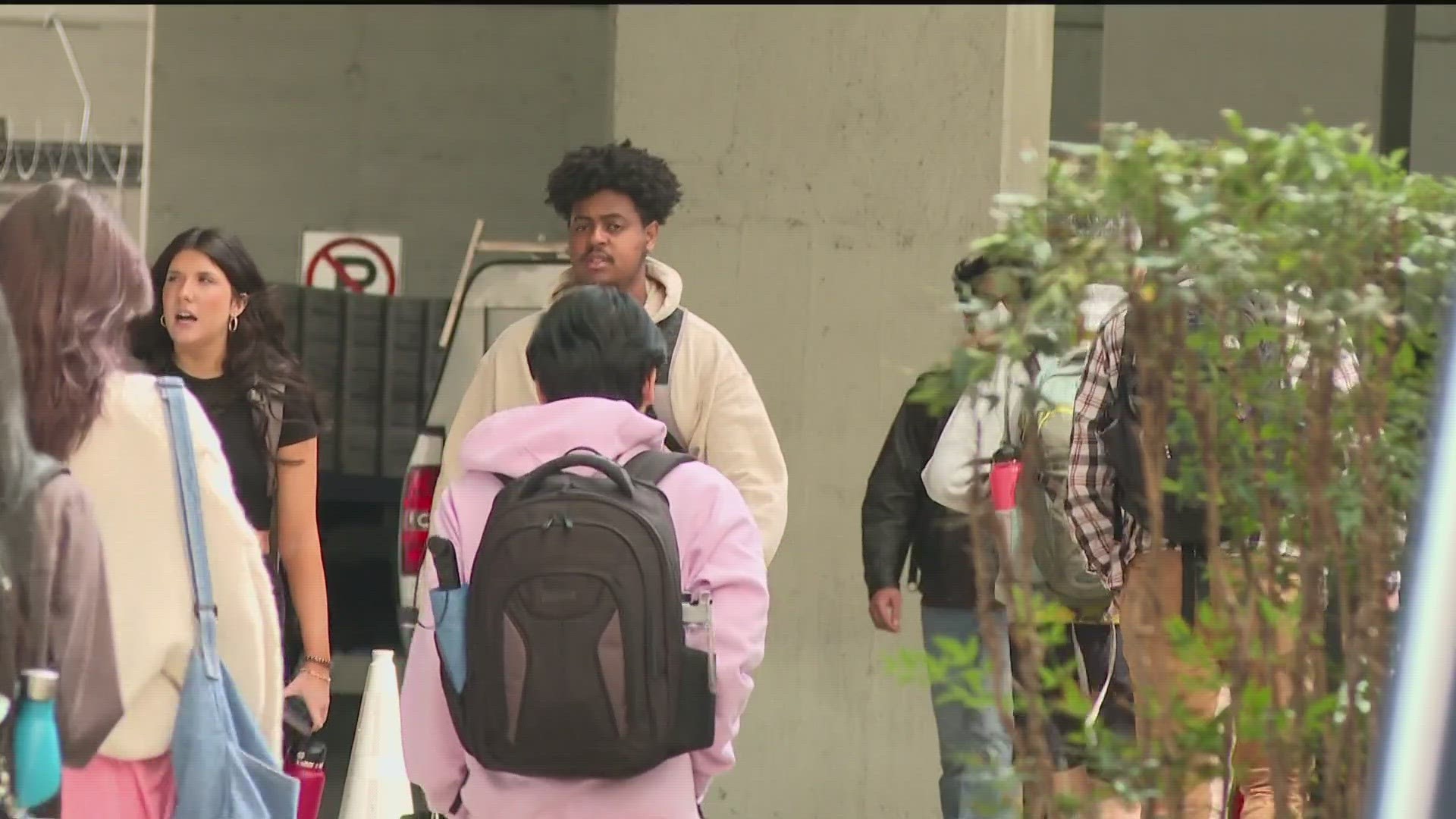ATLANTA — New research highlights the continued racial disparities represented for Black students borrowing money to pay off their college debt.
Tamryn Davis is set to graduate next year from Albany State University. The first-generation college student has about $11 thousand in student loan debt and plans to go to graduate school, which means she could rack up even more student loans.
Kat Welbeck with the Student Borrower Protection Center said new research shows Davis's financial struggles stem from a cycle that can be traced back to the racial wealth gap in Atlanta, statewide and nationwide. Welbeck said data from 2010 to 2020 shows Black students earned less than White students overall.
That means Black students are likely to borrow more money, resulting in accruing more debt. More debt could mean late payments on higher balances, which could prevent them from starting a business, buying a house or generating long-term wealth.
"Black students, in the case of this research, were more likely to take out loans, borrow in higher amounts and then leave school with more debt," Welbeck said. "That cuts into wealth-building opportunities over their lifetime. People are going to school, trying to attain higher education, seeking social mobility, but at the same time, we’re seeing that student loan debt is really a significant barrier to opportunities in economic mobility."
Candice Drummond graduated from Georgia State University, but a mountain of student loan debt has her worried about affording her daughter's college education. She said the amount of debt to attain an education for her and her husband has made them reevaluate life choices like buying a home and having more kids.
"As a black woman living in the South, I face enough barriers to my progress, and my desire to get a college education 20 years ago should not be one of those," Drummond said. "Now my generation, who’s deeply in debt, has the burden of carrying even more debt for their children to go to college.”
As for relief, the student loan repayment pause that began under former President Trump and President Biden's plan to forgive thousands in student loan debt both face challenges in Congress and the Supreme Court of the United States. Aissa Canchola Bañez, senior adviser for policy and strategy with the SBPC, said doing away with that relief could undo progress made during the pandemic.
"So the same folks that finally saw reprieve over the payment pause and have been able to get back on their feet could see several months of payments added back into their student loan balances," Bañez said. "It's a reminder of the communities that have the most to gain from student debt relief and unfortunately the most to lose should these efforts to attack student loan borrowers be successful.”
According to the SBPC, there are nearly 1.7 million federal student loan borrowers in Georgia with more than $70 billion in outstanding student debt. Older borrowers, per the SBPC, carry about 25% of that debt. Eighty-nine-percent of Georgia student loan borrowers would be eligible under President Biden's student loan forgiveness plan.
“The promise of that economic freedom weighs so much more heavily within black and brown communities in which this student debt crisis has disproportionately fallen hardest on," Bañez said. "For millions of folks, they’re left waiting to see if they’ll have a chance at financial stability, the chance to purchase a home, to start a small business.”
Davis said that relief could save her and her family thousands.
"It would just to take a lot of pressure off my father and myself as well," Davis said. "I really wanted to make sure that my dad retires and doesn't have to stress about anything. But I have student loans under his name and my name. It's kind of like he has to go and pay for the things and not enjoy his life or his goals."

